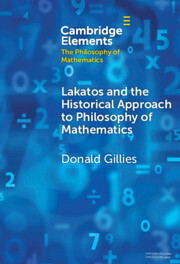1 results

Lakatos and the Historical Approach to Philosophy of Mathematics
-
- Published online:
- 27 November 2023
- Print publication:
- 21 December 2023
-
- Element
- Export citation

